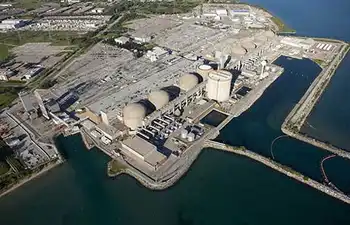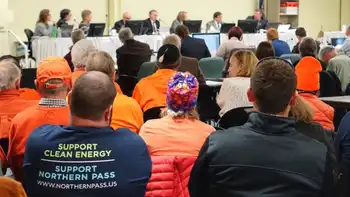Smart meter cost may double
TORONTO, ONTARIO - Ontario householders can expect to pay an additional $3 to $4 a month for electricity to cover the cost of installing and running new "smart meters" throughout the province, the Ontario Energy Board says.
The OEB has released a $1 billion implementation plan to meet Energy Minister Dwight Duncan's promise to install a smart meter in every home and business in the province by 2010.
The meters will enable utilities to charge even more for electricity used during peak periods, when the power grid is under stress.
An official in Duncan's office cautioned that the report isn't yet government policy.
"The government is going to be reviewing the OEB's plans and recommendations and will be considering them but we will be announcing our own plan," said Angie Robson, communications assistant to Duncan, who was in New York recently and unavailable for comment.
The monthly costs are far higher than the previous estimates of a dollar or two a month for the smart meters, but Robson emphasized that the savings people could realize by using these meters could easily offset the monthly fee.
"That $3 and $4 doesn't incorporate potential offsetting savings resulting from people shifting their use to off-peak times," she said. "We want to empower consumers to better manage their electricity use and consumption."
New Democratic Party leader Howard Hampton said the plan will do little to cut power consumption, but will have one unpleasant effect.
"It's going to substantially increase people's electricity bills," he said. "There are a lot of people, a lot of businesses and some industries in the province that can't afford it."
Conventional meters simply record the total amount of power used between readings, taken every month or two.
Smart meters record power use hour by hour, so customers can be charged a high rate during the peak evening hours, but a lower rate overnight or on weekends when demand for electricity declines.
The board says local utilities should be able to choose their own meters and supporting systems from the variety on the market. Some send information to the utility by radio signal, others over a phone line.
The energy board said consumers should be able to see each day's electricity use within 24 hours via telephone or Internet, so they can monitor consumption and cost.
The energy board's plan has one big gap: It doesn't look at the possibility of installing individual meters for each unit of apartment or condominium buildings that now have a single meter for the entire building.
Duncan has said installing individual meters for each apartment and condo unit in the province would boost the number of meters to about 6 million from 4 million — boosting the cost of the meters alone by another $500 million.
Critics said the plan will hit the poor hardest — they are the most likely to heat their dwellings with electricity, and are most vulnerable to increased power costs.
Keith Stewart of the Low Income Energy Network also noted that the communication systems utilities will install to monitor the new meters will make it easier for them to cut off service to people who fall behind in their payments.
Tom Adams of Energy Probe noted that, under the energy board plan, utilities will be able to charge customers for the computer and communications systems needed to run the smart meters even before all customers get the meters.
"Most customers will be paying smart metering costs even before they get smart meters," he said.
Related News

Ontario Supports Plan to Safely Continue Operating the Pickering Nuclear Generating Station
TORONTO - The Ontario government is supporting Ontario Power Generation’s (OPG) continued safe operation of the Pickering Nuclear Generating Station. At the Ontario government’s request, OPG reviewed their operational plans and concluded that the facility could continue to safely generate electricity.
“Keeping Pickering safely operating will provide clean, low-cost, and reliable electricity to support the incredible economic growth and new jobs we’re seeing, while building a healthier Ontario for everyone,” said Todd Smith, Minister of Energy. “Nuclear power has been the safe and reliable backbone of Ontario’s electricity system since the 1970s and our government is working to secure that legacy…




